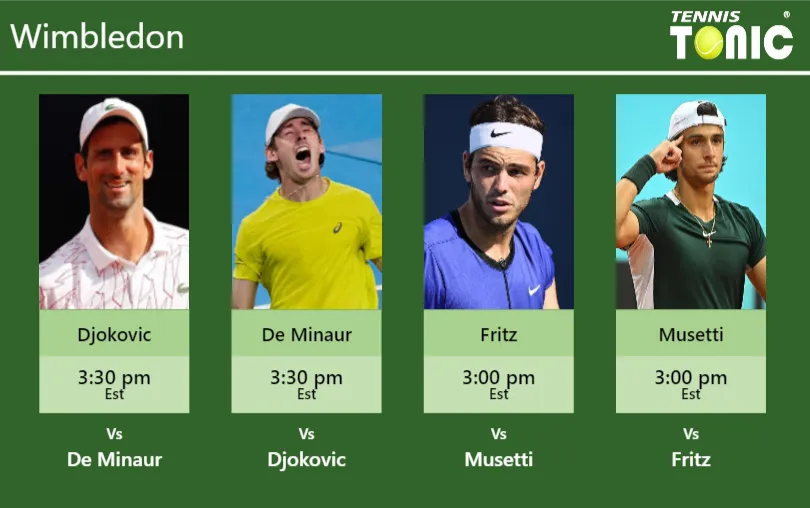Novak Djokovic is a name that has become synonymous with tennis greatness. His fierce competitive spirit, unwavering determination, and incredible talent have made him one of the most successful players in the history of the sport. With 20 Grand Slam titles to his name, Djokovic has cemented himself as one of the “Big Three” alongside Roger Federer and Rafael Nadal.
But what sets Djokovic apart from other tennis greats? In this article, we will take an in-depth look at his career stats and analyze the factors that have contributed to his rise as a tennis legend. From his early years as a promising young player to his record-breaking achievements, we will explore every aspect of Djokovic’s extraordinary journey in the world of tennis.
Early Years: The Making of a Champion

Childhood and Early Tennis Training
Novak Djokovic was born on May 22, 1987, in Belgrade, Yugoslavia (now Serbia). He grew up in a family deeply passionate about sports, especially tennis. His parents, Srdjan and Dijana, were both professional ski instructors, but they also played recreational tennis. As a result, Djokovic was introduced to the sport at an early age and showed a natural aptitude for it.
At the age of four, Djokovic began hitting tennis balls with his older brothers Marko and Djordje. He quickly developed a love for the sport and started taking lessons at a local tennis club. His talent and dedication were evident even at a young age, and he soon caught the attention of Jelena Gencic, a former Serbian tennis player who became his first coach.
Under Gencic’s guidance, Djokovic honed his skills and developed a unique playing style that combined power, speed, and precision. He also adopted a two-handed backhand as his signature shot, which would prove to be a formidable weapon against his opponents in the future.
Junior Career
Djokovic’s junior career was nothing short of exceptional. He won numerous titles and established himself as one of the top young players in Europe. In 2001, he captured the European Under-14 singles title, and the following year, he became the world No. 1 junior player after winning the Australian Open and reaching the finals of the French Open.
His success on the junior circuit caught the attention of many tennis pundits, who predicted a bright future for the young Serbian. However, Djokovic faced a challenging decision when he turned 16 – whether to continue playing juniors or turn pro. He ultimately chose the latter and began his journey towards becoming a professional tennis player.
Rise to Prominence: Breakthrough Years (2005-2007)
Early Professional Career
In 2004, at the age of 17, Djokovic made his ATP World Tour debut at the Dutch Open in Amersfoort. He lost in the first round to Ivan Ljubicic but gained valuable experience competing against top-ranked players. In the same year, he also played his first Grand Slam tournament at Wimbledon, where he reached the third round before losing to eventual champion Maria Sharapova.
The following year, Djokovic won his first ATP title at the Moselle Open in Metz, France. He then went on to achieve his first top-20 win by defeating world No. 8 David Nalbandian at the Madrid Masters. His impressive performances earned him the ATP Most Improved Player of the Year award in 2006.
First Grand Slam Title: Australian Open 2008
Djokovic started the 2008 season with a bang by winning the Australian Open, his first Grand Slam title. He defeated Jo-Wilfried Tsonga in the final and became the youngest player to win a Grand Slam title since Rafael Nadal in 2005. This victory propelled him to the world No. 3 ranking, making him the youngest player in the top three since Boris Becker in 1986.
Djokovic’s success at the Australian Open marked the beginning of his rivalry with Federer and Nadal, who had dominated men’s tennis for years. Many predicted that Djokovic would be the one to break their stronghold on the sport and usher in a new era of dominance.
The Golden Years (2011-2016)

The Year of Records: 2011
2011 was undoubtedly the most successful year of Djokovic’s career, both in terms of titles won and records broken. He won ten titles, including three Grand Slams – the Australian Open, Wimbledon, and the US Open. He also reached the finals of the French Open, losing to Federer. His record of six consecutive finals appearance at the four major tournaments is still unmatched by any player.
Moreover, Djokovic accumulated an 84-6 win-loss record, which is the best single-season winning percentage since John McEnroe in 1984. He also broke Nadal’s record for the most ATP Masters 1000 titles in a single season, winning five out of nine tournaments.
Rivalry with Federer and Nadal
Djokovic’s rivalry with Federer and Nadal intensified in the golden years of his career. From 2011 to 2016, the “Big Three” dominated men’s tennis, winning all but two Grand Slam titles (Andy Murray won the 2012 US Open, and Stan Wawrinka won the 2014 Australian Open). Djokovic, Federer, and Nadal won a combined total of 30 Grand Slam titles during this period.
Their rivalry not only produced some of the most exciting matches and moments in tennis history but also elevated the overall standard of the sport. Djokovic, in particular, pushed both Federer and Nadal to new heights, challenging their dominance on all surfaces. The trio’s intense competition captivated audiences worldwide and helped grow the popularity of men’s tennis.
Olympic Gold Medalist
Despite his immense success on the ATP Tour, Djokovic had yet to win an Olympic gold medal – a feat that had eluded him throughout his career. However, that changed in 2016 when he won the singles gold at the Rio Olympics after defeating Juan Martin del Potro in the final.
Djokovic also won a bronze medal in doubles with partner Nenad Zimonjić at the Beijing Olympics in 2008. However, it was his victory in Rio that solidified his status as one of the greatest players of all time and added another milestone to his illustrious career.
Recent Years (2017-Present)
Struggles and Comeback: 2017-2018
The years 2017 and 2018 were marked by injuries and struggles for Djokovic. He suffered from a recurring elbow injury that affected his performance and forced him to withdraw from several tournaments. As a result, his ranking dropped outside the top 10 for the first time since 2006.
However, Djokovic refused to let his setbacks define him and made a remarkable comeback in 2018. He won two Grand Slams (Wimbledon and the US Open) and became the first player to complete the Career Golden Masters by winning all nine ATP Masters 1000 titles. He also regained the world No. 1 ranking, cementing his position as one of the greatest players of all time.
Continued Dominance: 2019-Present
Djokovic’s resurgence continued in the years that followed with more Grand Slam titles and records broken. He won the Australian Open in 2019 and 2020, extending his record of most titles at a single major tournament to eight. He also won Wimbledon in 2019 and the French Open in 2021, becoming the first man in the Open Era to win each major title at least twice.
In addition to his Grand Slam achievements, Djokovic has continued to dominate the ATP Tour. He broke Federer’s record for most weeks at world No. 1 in March 2021 and is currently the holder of all four Grand Slam titles, known as the “Djoker Slam.”
Djokovic’s Career Stats: An In-Depth Analysis

Grand Slam Titles and Finals
Djokovic’s record at Grand Slam tournaments is nothing short of remarkable. He has won 20 Grand Slam titles and reached the finals of 31 out of 44 appearances – an impressive success rate of 70%. He holds the record for the most Australian Open titles (9) and is tied with Federer for the most Wimbledon titles (6).
His dominance at the Australian Open is particularly noteworthy, where he has a win-loss record of 82-8. He also has a positive winning record at Wimbledon (72-10) and the US Open (75-12). His only struggles have been at the French Open (44-15), where he has faced tough challenges from Nadal on clay courts.
ATP Masters 1000 Titles
Djokovic’s success extends beyond Grand Slams with a record-breaking 36 ATP Masters 1000 titles. He leads the list of most titles in this category and has won at least one title in every year since 2007, except for 2017. His dominance at these prestigious tournaments earned him the nickname “King of the Masters.”
ATP Finals and Tour Titles
Djokovic has also enjoyed considerable success at the ATP Finals, winning six titles (tied with Federer for most titles). He has also won 83 tour titles in total and is tied with Nadal for the third-most titles in the Open Era, behind Connors and Federer.
Win-Loss Record and Winning Percentage
As of July 2021, Djokovic’s career win-loss record stands at an outstanding 947-195, giving him a winning percentage of 83.7%. This places him second on the all-time list, behind only Bjorn Borg (89.8%). His closest rival, Federer, has a winning percentage of 82.5%.
Moreover, Djokovic holds an impressive record against top-10 players, with a 222-113 win-loss record and a winning percentage of 66.3%. He also boasts a positive record against Federer (27-23) and Nadal (30-28), further solidifying his position as one of the greatest players to have graced the sport.
No. 1 Ranking and Weeks at No. 1
Djokovic is currently ranked world No. 1, a position he has held for a total of 325 weeks and counting. This surpasses Federer’s record of 310 weeks and makes Djokovic the first player in the history of the sport to hold the top spot for over 300 weeks. He has also ended the year as No. 1 five times, tied with Jimmy Connors and Federer for the most year-end No. 1 finishes.
Conclusion: A Legend in the Making
Novak Djokovic’s career stats are a testament to his unparalleled success and dominance in the world of tennis. With 20 Grand Slam titles, 36 ATP Masters 1000 titles, and numerous other records to his name, he has established himself as one of the greatest players of all time.
But it’s not just his impressive numbers that make Djokovic a legend – it’s his relentless drive to succeed, his unwavering determination, and his ability to overcome adversity. Throughout his career, he has faced numerous challenges, including injuries, tough competition, and personal struggles. Yet, he has always emerged stronger and more resilient, a true champion in every sense of the word.
As Djokovic continues to add to his already illustrious career, there is no doubt that he will go down in history as one of the greatest athletes of all time, not just in tennis but in any sport. His legacy will inspire future generations of players and serve as a shining example of what can be achieved with hard work, dedication, and an unbreakable spirit.

